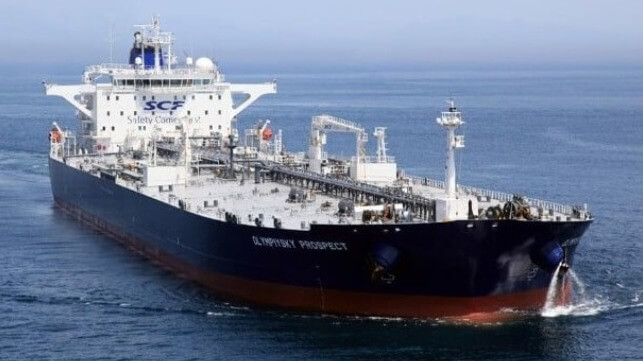UK Moves to Ban Insurance and Services for Transport of Russian Oil

The UK Government announced its latest, sweeping steps designed to reign in the Russian oil industry in support of the initiatives of the G7, EU, and the U.S. The UK Treasury announced a ban on the provisioning of services including critical insurance for ships transporting Russian oil while reiterating support for the G7’s attempts to impose a price cap on Russian oil ahead of the winter months in Europe.
The move follows the decision made by the G7 finance ministers in September who committed to the price cap as a way of undermining Putin’s ability to fund the war in Ukraine through inflated global oil prices. The Treasury noted that the UK and its coalition partners will not make use of the price cap, as they have introduced an import ban on Russian oil.
“Insurance is one of the key services that enable the movement of oil by sea,” the Treasury highlighted in announcing the new legislation. They pointed to the importance of protection and indemnity (P&I) insurance noting that the UK is a global leader in the provision of P&I coverage, writing 60 percent of the global policies. The legislation effectively blocks access to the Lloyd’s of London market for Russia’s energy cargos being transported by ship.
The EU and the United States are expected to follow suit with their own efforts in support of further blocking services to tankers transporting Russian oil products. Lawyers reviewing the UK legislation noted that it largely follows the lead set by the U.S.
The UK legislation also advanced the date for the UK’s ban on the import of Russian oil. It is now due to go into effect on December 5 for crude oil advanced from the previous end-of-year timing. In addition, the ban on refined oil products is set to become effective on February 5, 2023, to align with the EU timeline for a parallel measure.
“We continue to stand by Ukraine in the face of Putin’s barbaric and illegal invasion. We’ve banned the import of Russian oil into the UK and are making good progress on phasing it out completely,” said Jeremy Hunt, Chancellor of the Exchequer. “This new measure continues to turn the screws on Putin’s war machine, making it even tougher for him to profiteer from his illegal war.”

that matters most
Get the latest maritime news delivered to your inbox daily.
While the move was a critical step in support of the efforts to further curb the Russian oil market, especially in Europe, the Treasury noted, “The ban on services, including insurance, brokerage, and shipping, will be coupled with a General License, expected shortly, that lays the basis for an Oil Price Cap exception that will allow third countries to continue accessing services only if purchasing Russian oil at or below the cap.”
The cap was a compromise arrived at by the G7 meant to reign in the rampant price increases and prevent Russia from profiteering while still providing access, especially to third-world countries. The details on the level of the price cap are still being discussed by the coalition.
